Another year of record-high temperatures locally underscored the urgency of creating a net zero carbon energy grid. Meanwhile, Loudoun’s hunger for energy continues to grow, especially in the data center industry with new large-scale projects adding hundreds of megawatts of demand. That has business and government leaders turning increasingly to a technology more than 50 years old: nuclear energy.
It’s become increasingly clear that some of today’s most recognizable renewable energy sources, like solar and wind, are not catching up. Dominion Energy’s planned 835-acre solar panel array at Dulles Airport will have a nameplate capacity of 100 megawatts. In practice, The U.S. Energy Information Administration calculated that solar arrays in Virginia generate a little over 20% of their nameplate capacity. And Loudoun’s Data Center Alley alone now hosts more than a thousand megawatts of demand.

Data centers along Shellhorn Road, directly adjacent to Loudoun Station.
Now, government and energy industry leaders are looking toward small modular reactors, a concept for smaller-scale nuclear reactors produced in an assembly line fashion, which would produce less power than today’s large-scale nuclear energy facilities but would also be quicker and easier to build and require much less land. Small reactors are those that produce up to 300 megawatts.
At a Loudoun Chamber of Commerce event Aug. 8, Virginia Secretary of Commerce and Trade Caren Merrick said the state is meeting regularly with Dominion and other providers on that topic.
“Many, many companies have been reaching out to us here in Virginia because of our nuclear energy, because companies want to know that they're going to have the energy that they need to grow,” Merrick said. “And it's not only data centers—it’s agriculture, it’s manufacturing. We need to have energy more than we do.”
Gov. Glenn Youngkin’s administration, while rolling back much of Virginia’s effort to decarbonize its grid, has also targeted small modular reactors for Virginia, in particular looking toward southwest Virginia.
“The governor has put a stake in the ground and he said, ‘my moon shot is within 10 years, we're going to have a small modular reactor in Virginia,’” Merrick said. “That's not going to be just one. We need more than one. We are talking to companies that want their own modular reactor, as you say, so that they can have certainty. And again, if we want to compete to win, if we want energy not only for data centers, but for schools and hospitals, we need to be serious about making those investments.”
“If we don't collectively start thinking about new paradigms and out of the box, the business-as-usual approach that's going on with data center growth right now is not going to cut it,” Supervisor Michael R. Turner (D-Ashburn) said. And outgoing Deputy County Administrator Charles Yudd said he thinks Loudoun’s next big planning challenge won’t be land use, as it has been for the past three decades, but infrastructure, especially energy infrastructure.
“We see high-demand users contemplating small nuclear reactors, things that might need to be incorporated into business systems,” he said.
And Dominion Energy Director of Business Development Todd Flowers, who is responsible for developing and acquiring all of the company’s power generation, said nuclear power will be necessary to curb carbon emissions.
“As a company we recognize that if you want to get to a net zero-carbon grid, you really can’t do that without nuclear,” Flowers said. “With solar, and offshore wind, and onshore wind, we have such a great need for energy and capacity, we need to have other options available to us that are carbon-free, so we think that nuclear needs to be a part of that solution. And if you look at our emissions today … our North Anna and Surrey [nuclear] plants produce over 90% of our carbon-free generation.”
And he said he sees unusual bipartisan support for new nuclear technologies—“there’s a lot of really positive momentum, and if you look at what’s going on at the federal level, there are very few things that are not polarizing,” he said. But the bipartisan Accelerating Deployment of Versatile, Advanced Nuclear for Clean Energy, or ADVANCE, Act, introduced by five Republicans and five Democrats, is moving through Congress now.
“It’s recognized by both the Republicans and the Democrats, if we want to decarbonize the grid, we’ve got to add nuclear,” he said.
But Flowers, himself a former nuclear engineer, said those first small modular reactors are still at least 10 years away, and Loudoun is an unlikely place for them.

A substation near the intersection of Rt. 606 and Loudoun County Parkway.
He said the company’s been looking into the technology for several years. Already, the first design in the U.S. has won approval from the Nuclear Regulatory Commission, a design by NuScale Power with factory-built power modules generating 50 megawatts, and a power plant that can house up to 12 modules.
But even with the technology ready today, he said before switching on a reactor of its own, Dominion would need to go through years of regulatory approvals at the federal, state and local levels.
“Based on where we are in the design of these facilities, where the various vendors are in getting the regulatory licensing, and our anticipated construction timeframe, we anticipate that the first SMR could be online as soon as the end of 2033,” he said. “So, it’s still a decade development timeline, primarily driven by the timing of that regulatory licensing and construction.”
But he said the technology is there—in fact, there are a few options, which the company has been winnowing down.
“The two things we need to do are pick a site and pick a technology,” he said. And the company has been looking at locations around the state to potentially host that first small modular reactor—although built-up, population-dense Loudoun may not be high on the list.
Instead, the utility may build the first small modular reactor at an existing nuclear plant, where there’s plenty of excess land. They’re also looking at industrial sites, including retired or soon-to-be-retired coal plants, where water and electric grid connections already exist. Southwest Virginia, in particular, has been a possibility.
“There’s a lot of momentum behind putting a facility there,” he said. “That community has been part of the broader power production for generations, looking at areas that have been adversely affected by the use of coal producing facilities.” He said giving those communities a fresh investment with new nuclear power plants is attractive.
He said down the road, future generations of small modular reactor may be built near major power users and population centers. But in the near term, Loudoun will more likely see utility-scale energy storage, such as the 50-megawatt battery facility also planned at Dulles Airport. The new county zoning ordinance, undergoing final review now, for the first time contains regulations of that kind of facility. Flowers said there, too, there is promising new technology, like the new “iron-air” battery that could last longer and cost less than current lithium-ion batteries. And already, concerns have been raised about the planet’s limited supply of lithium.
“I think that over time, for utility-scale energy storage, we’re going to have to deploy something more than lithium-ion batteries,” Flowers said. “We’re competing for lithium with EVs [electric vehicles], and we know what demand there is.”
Old Tech Made New
Nuclear power has long been associated with disasters like the 1986 Chernobyl Nuclear Power Plant disaster, the 2011 Fukushima Daiichi Nuclear Power Plant disaster brought on by an earthquake and tsunami, and the partial meltdown of a Three Mile Island reactor in Pennsylvania.
However, Flowers said modern reactors are designed to be what’s called “walk-away safe”—passively cooled without any moving parts, power, or intervention necessary. They’re systems designed to cool off on their own even if they were simply abandoned, in which it’s theoretically impossible to melt down. And he pointed out the two nuclear power plants in Virginia have been operating for decades—the Surry Power Station switched on in 1972, and the North Anna Power Station switched on in 1978.
“These facilities are based on the same thermodynamics, the same physical principals, that have been operating for decades. In fact, our Surry nuclear plant has been operating for over 50 years,” Flowers said. “Some of the fundamental ways they operate are really no different, but what they’ve done is they’re brought on enhanced safety systems that don’t rely on equipment to function.”
And, he pointed out, “there’s a fleet of SMRs that are operating today and have been operating for decades off our coast in Norfolk”—powering aircraft carriers, submarines and other naval vessels.

Power lines over homes in Kirkpatrick Farms, viewed from Supreme Drive in Aldie.
Small modular reactors could make the energy industry more agile by bringing on power generation in smaller increments as needed, with smaller capital investments needed. Current plants also take up a lot of land—not only for the plant itself, but for the miles-wide emergency planning zone that must surround it. For small modular reactors, Flowers said, the emergency planning zone is only as large as the site itself.
“The industry has not done a good job about building these larger, centralized nuclear power plants on time and on schedule,” he said. But small modular reactors, with their smaller footprints and assembly-line production, provide much more certainty around construction costs and timelines.
The question of what to do with radioactive spent nuclear fuel remains. Although some countries use technologies to recycle nuclear fuel, that’s not done in the U.S. The most radioactive waste can remain dangerous for thousands or even tens of thousands of years. For now, that waste is often stored at the power plant—Flowers said all of the waste that’s ever been generated at North Anna is stored on-site.
And in the near term, while the world is still waiting for small modular reactors, Virginia’s energy demand will continue to be met at least in part with fossil fuels. Flowers said Dominion is looking to natural gas combustion turbines as a bridge technology to meet the demand for energy today.
Data Center Coalition President Josh Levy declined to comment for this article.

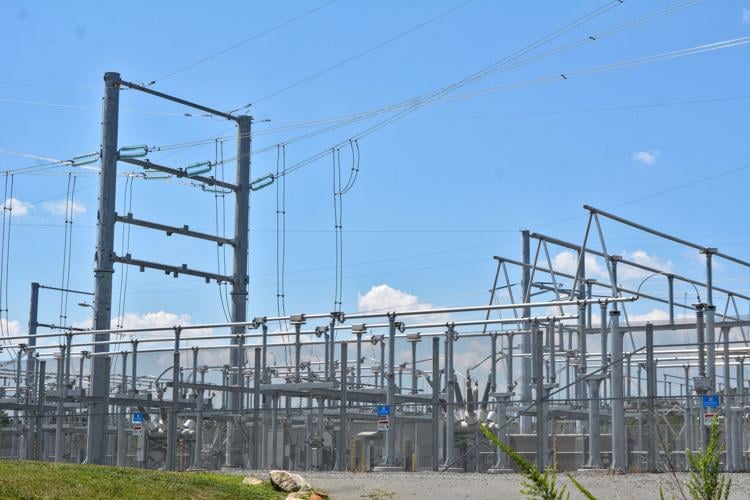
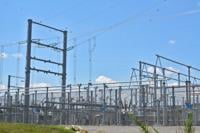
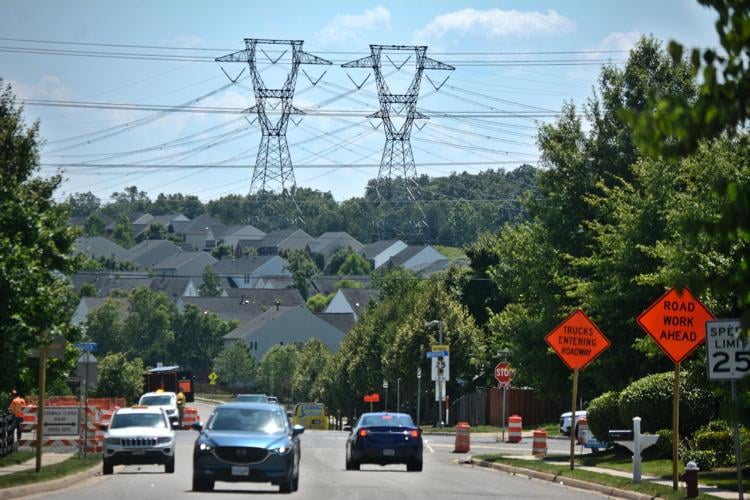
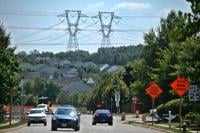
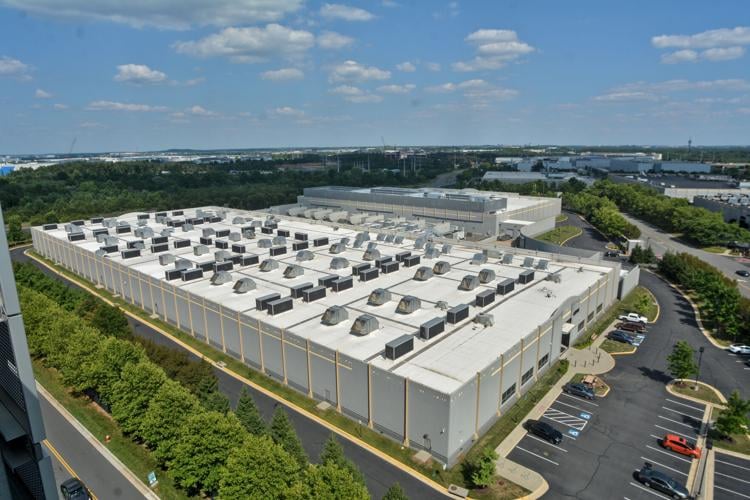
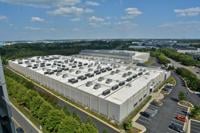
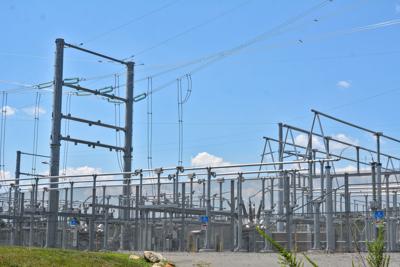



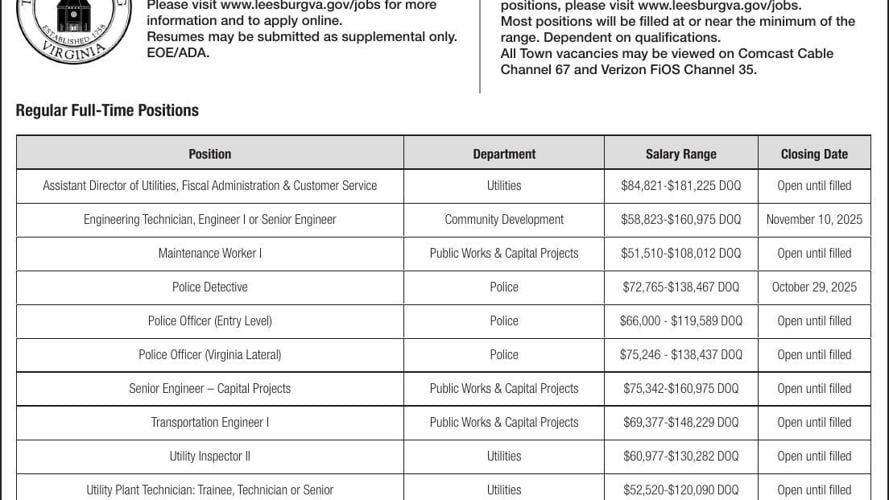








(16) comments
One thing is for sure. The shrill opponents of nuclear power stating decades old leftist propaganda against it are woefully uneducated in the evolution of nuclear power plant technology. The other thing is that your beloved electric cars have no future without nuclear power. The belief that windmills and solar farms will power the grid are a pipe dream. Windmills are nonrecyclable and being buried in Wyoming. Solar farms destroy wildlife habitat by the square mile. Currently your crummy EVs are powered by coal. I love when intellectuals argue. They always choose subjects they know nothing about.
Anyway, nuclear power is already poised for the future, it's just that our politicians are oil and coal patriarchs and have consistently blocked nuclear power for decades by springing the "nuclear waste" boogyman out anytime the issue is raised, because it would substantially end those industrial power bases for good.
So let's think rationally for a moment and not emotionally. Ask any electrical engineer about nuclear power and listen to what they say, that nuclear is the only way to move forward considering the future demand for electricity, (ironically championed by intellectuals), due to the increase of EVs and their stress on the current grid. Also look into nuclear waste. There is a lot for you to learn there as well.
This argument is settled.
Carol, is it OK if we build a small nuclear reactor adjacent to your home and another next to your children's school?
I know these things sound wonderful, but Loudoun is only 500 sq miles. They're going to be very close to people. Since you're such a vocal proponent, would you be willing to put your money where your mouth is and live near them?
Nuclear energy has always been a problem due to the waste it creates. In the U.S. there is no way to safely get rid of it, or contain it. It lasts for thousands of years. And while it’s active, it’s extremely dangerous. Residents in Loudoun are fed up. The once beautiful landscape is being littered with increasingly hideous looking data centers. I’m sure everyone would be even more thrilled to have the value of their homes plummet should they decide to start building nuclear plants in this area. Loudoun Govt is so concerned with attracting more data centers, they have completely forsaken the residents who live here. We have to tolerate $10.00 toll roads, a waste land of data centers, and the clever car tax that never dies. Adding small nuclear plants to all this sounds just peachy.
Wow! There are certainly some knee jerk responses to this article.
How close would you be willing to live to an operational nuclear reactor?
Ka Boom !! Not at all.
Loudoun County spends $650,000 per day on interest payments only for its debt! It is time voters wake up and stop electing politicians throwing us into debt!! Overspending I’m the name of ridiculous climate change needs to stop! Dems pushing their pet projects costing all of us big money needs to stop!!!
Cannot wait to see in who's backyard these small nuclear plants are going to be built...
"Another year of record-high temperatures locally underscored the urgency of creating a net zero carbon energy grid. "
Really? When and where were there locally record-high temperatures this year?
Could you provide a link to that data?
Here is the link to the NOAA temperature data for Sterling-Dulles.
https://nowdata.rcc-acis.org/lwx/
Choose Sterling-Dulles, temperature graphs, 2023, annual, go, and you can see a nice graph of the year so far--with this years observed max/min; record max/min and normal ranges.
Right there for any reporter to see--not a "year of record-high temperatures" at all.
In fact, it looks like there was only one record-high temperature so far in 2023, Feb. 23 hit 80 degrees.
Besides that, the data looks like a very normal year.
Why the panic? Why the thousands of words spilled discussing "decarbonization?"
Relax.
Record High Temperatures??? Really? Weird premise. This is not Arizona, West Texas, or Oklahoma.
More truth that solar and wind energy will not be enough. We know what works so let's move forward with it.
OK. How about a megawatt of truth? There is absolutely no "momentum behind putting a nuclear facility no matter how small in Loudoun". Did Mike
share with the crowd that it was Obama who shut down the ONLY nuclear waste facility in the USA forcing ALL nuclear plants no matter how small to store the highly hazardous waste for 1000's of years onsite? Did he offer that if thorium was used instead of uranium this could be avoided but the financials justifying the venture would be far different and perhaps not even supported by the D.O.E.? Did Mike mention it was President Carter who pushed the USA away from reprocessing nuclear waste? We can't even stay within budget for burying garbage and this guy thinks he has an answer for nuclear power. Thats rich! Signaling that the earth (which is unique in the solar system precisely because it is carbon based) must reduce carbon may sound interesting but it lacks detail. Highly scaled nuclear power is about 10 times more expensive than hydro and 3 times more than coal but only when you don't count the 1000's of years the waste has to be stored to avoid human life ending contamination. Please go back to digging out 100 year old statues and leave the intelligent stuff to the next BOS. This is an agricultural/residential county not a dumpsite for partisan driven ideas!
So what is your solution. 835 acres for solar farms that produce 1/10 of the energy needs of just Loudoun's data centers hardly seems good custodianship of our 'agricultural and residential' land. To provide the equivalent energy just to provide enough to support the data centers would require over 8300 acres or nearly 14 square miles of land. The solution is to go to nuclear, and use natural gas for the short term. Long term our federal investment in nuclear fusion research is needed, a clean and endless supply of energy. We need a multi-prong approach to enery, not a 'green only', not a nuclear phobic reaction, not a carbon fuel only solution.
While cleaner, more efficient energy is a laudable goal, I take issue with the presumption that net zero carbon is the end game.
Eliminating carbon based energy is a fantasy for the foreseeable future.
Greater use of natural gas for power plants and vehicles would due more to provide cleaner more efficient energy than any renewable approach. And nuclear power is another much more realistic approach.
The article’s first sentence alludes to recent hot weather as a rationale for diversifying energy sources. Implicitly the author is tying discrete weather events to global climate trends which is naïve nonsense.
It seems the media and much of the global population has submitted to the fiction that carbon emissions is existentially dooming the planet. This mass hysteria is based on demonstrably flawed models that have never been validated by reality and have often been proven wrong.
While climate doomsday predictions are interesting theories, the reality is they presume a level of scientific knowledge and expertise that does not exist.
Current science cannot predict weather without large variability . Current science stumbling with COVID ought to be a lesson in science’s limitations.
Are we willing to bet the nation’s economic viability and condemn developing nations to poverty for a net zero carbon strategy that is based on subjective computer models?
Exactly right!
I've said it for years that solar, wind, hydro are all band-aid solutions to get us to the only clean energy source capable of sustaining our insatiable desire for energy in the modern world--nuclear energy.
I really don't like wind that slaughters birds indiscriminately and hydro that destroys entire ecosystems and migration patterns. Glad to see nuclear is finally gaining traction.
Welcome to the discussion.
Log In
Keep it Clean. Please avoid obscene, vulgar, lewd, racist or sexually-oriented language.
PLEASE TURN OFF YOUR CAPS LOCK.
Don't Threaten. Threats of harming another person will not be tolerated.
Be Truthful. Don't knowingly lie about anyone or anything.
Be Nice. No racism, sexism or any sort of -ism that is degrading to another person.
Be Proactive. Use the 'Report' link on each comment to let us know of abusive posts.
Share with Us. We'd love to hear eyewitness accounts, the history behind an article.